We are delighted to have graduate student Lara Schoorl help us conclude our spring 2016 season with some thoughts on artist Lyra Hill!
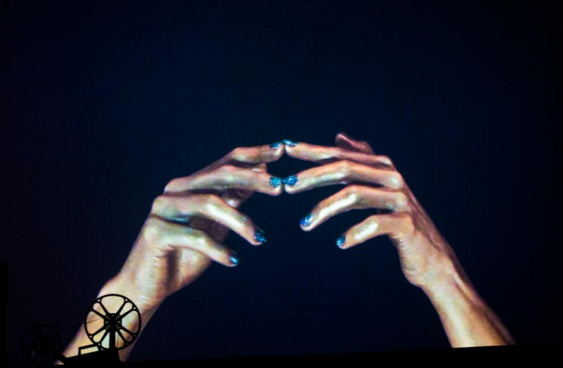
Lyra Hill’s work as an artist, curator, and performer expresses a deep engagement with place, whether that is a physical location or conceptual mindset. In her recent show at Conversations at the Edge, Hill used the conditions of her immediate surroundings—screens, audience movement, the darkness of the theater, and recent news of Prince’s death—as raw material for her transformative performances. These included the group meditation Breathe With Cube, an immersive performative reading of her comic Cat Tongue, and Happy Ending, an enveloping new piece on death and what lies afterward.
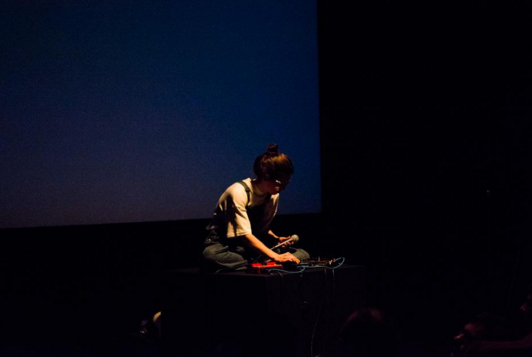
Although Chicago is not explicitly present in Hill’s work, her work engages the city’s arts communities. Hill is a graduate of the School of the Art Institute of Chicago, where she was involved with groups such as Xerox Candy Bar and the Experimental Film Society. After her graduation in 2011, Hill founded and ran Brain Frame, a groundbreaking series of “performative comix readings” held at different locations in Chicago from 2011 to 2014. She currently teaches teens at the Museum of Contemporary Art, hosts numerous events around the city, and runs the radio show Magic Chats, for which she invites people to bring in and talk about sounds and the unseen.
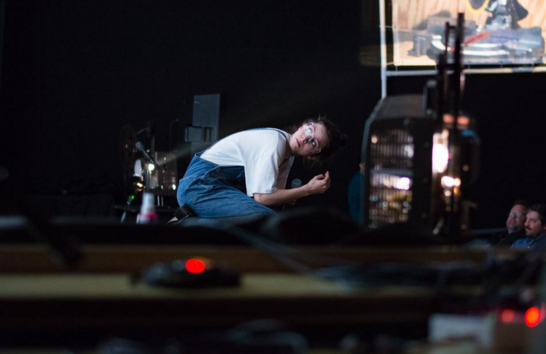
Hill’s investment in place is also a commitment to being present. In her performances, she is present and responsive to each moment, the particularities of her surroundings and materials, the audience, and to herself. She weaves her presence and her attitude of being present into multiple layers—her physical body, projected images, spoken words, written text. The complexity and impact of these layers becomes clear especially in Hill’s performance Cat Tongue, which tells a story about female sexuality, fantasy and power tools.
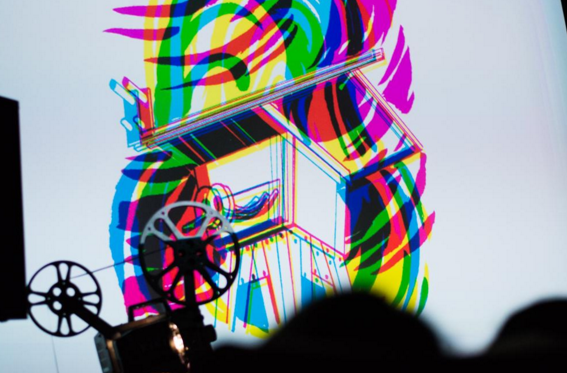
For Cat Tongue, Hill performed on a small stage at the center of three projected films—one projected in center of the theater, and two smaller films projected along the theater’s walls. The two wall projections feature documentary images of hands handling tools. The center projection is a color-separated animation built from three layers of drawings. Each layer is drawn in a different color—cyan, magenta or yellow—which pulsates into distorted dreamy images.
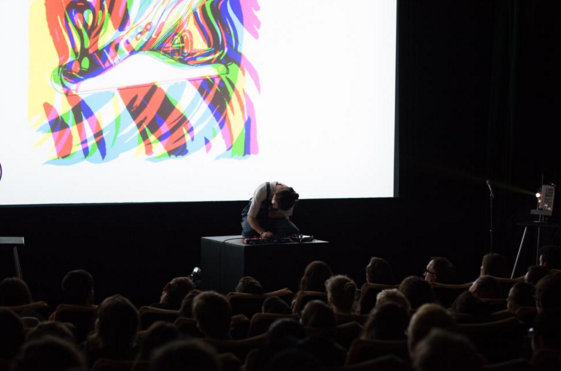
The effect of this set up is that the entire screen throbs behind her, like a fantasy or the memory of a dream, both real and surpassing reality, blurring that line usually drawn between the two. We see two women working in a wood shop handling tools, talking, touching machines and then licking them in a conceptually exploring way. They are not necessarily becoming animal, but feeling out being animal in the way it is already part of us. Alongside the images are printed texts which Hill also speaks. Occasionally, Hill’s reading purposely slides out of synch—reading more or less than the audience sees.
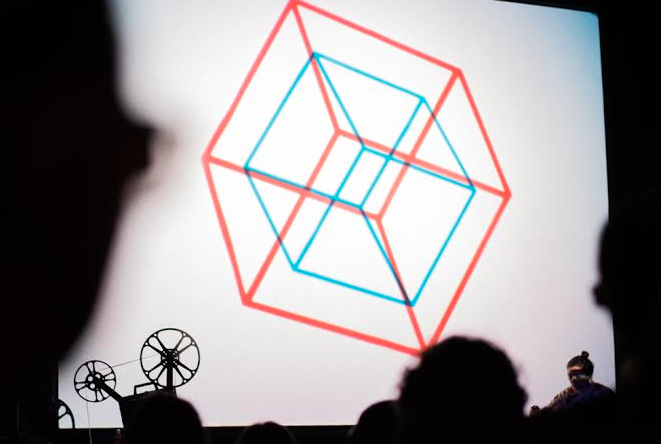
The narrative is thus cut open for imagination, and bleeds into the space and our minds. The text trembles as her voice echoes the text and vice versa. Hill is present in the work, forming another layer of the work herself via her physical voice and body, but also holding all layers together by mirroring the actions depicted in the projections. She licks the film projector when the projected image of one of the women licks power tool, she waves her hands at the hands handling the tools, and she manually distorts her voice so that it resonates with the images of hands operating the tools.
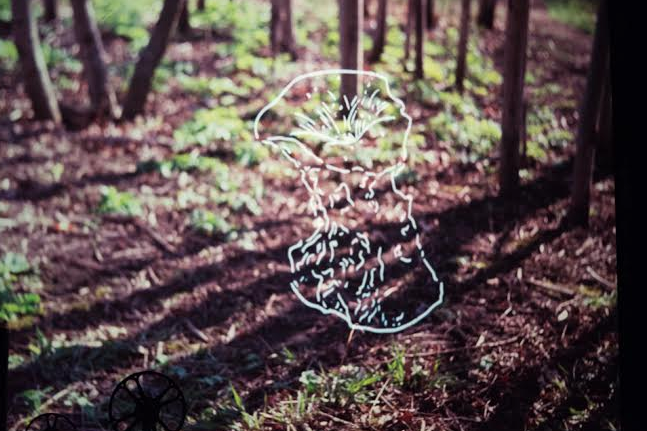
Hill’s work is about the stories and the materials those stories are made of. She is part of her own work, present in the space where it plays and she invites us to be present with her as well, leaving us open to ourselves and the world around us afterwards.
Lara Schoorl is currently pursuing a Master of Arts in Modern Art History, Theory and Criticism and the School of the Art Institute of Chicago. Her research and writing concern narratives of contemporary art, theories of translation and representation and Lorine Niedecker. She is writing her thesis on contemporary conceptual poetry, Mieke Ball’s theory of a contemporary baroque and the expression of the self. To approach her academic interest from a creative and subjective perspective she co-founded and/or is involved in collaborations with the Amsterdam Writers Guild, Potluck Salon (with Zeenat Nagree) and SAIC MFA Show 2016.